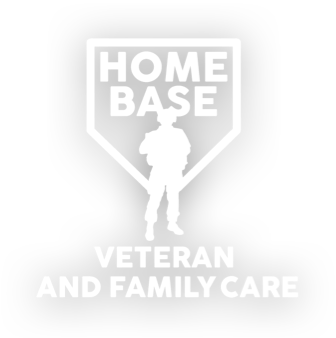Mental Health: Military Sexual Trauma
Military Sexual Trauma
Background:
As the world faces a global crisis, thousands of Service Members and Veterans are grappling with the effects of an epidemic of their own: Military Sexual Trauma (MST), which is any sexual assault or sexual harassment experience that occurs during military service. MST can be experienced by anyone, regardless of gender or rank. In 2018, the Department of Defense (DoD) released a Report on Sexual Assault in the Military estimating that there were 20,500 instances of ‘unwanted sexual contact’ in 2018, an increase of 38% from the 2016 report. In 2019, this rate increased by 3%. Not only has sexual assault been found to be more prevalent in military contexts versus civilian contexts (e.g., annual rates of sexual assault in the US military have been found to be up to 16 times higher than the annual incidence of sexual assault among women in the general population), but MST has also been associated with more severe PTSD symptoms than other trauma types, such as combat or civilian sexual trauma. Research also shows that MST survivors are less likely to report being the survivor of a sexual assault to military authorities compared to civilians reporting sexual assaults to legal authorities.
MST survivors can file reports in one of two ways:
Unrestricted Reporting: Opens up an official legal investigation, chain of command made aware, survivor receives all possible support services (e.g., medical, psychiatric, legal, protective orders, advocacy). Under this pathway, knowledge about the investigation is on a need-to-know basis only. Reports can be disclosed to Uniformed Victim Advocates (UVAs), civilian Sexual Assault Prevention and Response (SAPR) victim advocates, Sexual Assault Response Coordinators (SARC), healthcare staff, chaplain, legal counsel, chain of command, or law enforcement. In 2018, approximately 73% of reports were filed as Unrestricted (about a quarter of these were initially filed as Restricted).
Restricted Reporting: Kept confidential, does not prompt an investigation, does not involve command, survivor receives various, but not all, support services (e.g., medical, psychiatric, advocacy), but not command notification, military protective orders, or expedited transfers. Restricted reports can become unrestricted at any time and can be disclosed to UVAs, SAPR VA, SARCs, healthcare staff, chaplain, or legal counsel.
Despite the reported prevalence of MST, it is difficult to accurately determine the actual rate of MST because tracking these experiences relies on self-report, which is often underestimated for various reasons (e.g., fear of retaliation, lack of confidentiality, fear of disrupting unit cohesion). For instance, one study found that 25% of MST survivors who did not make an official report endorsed fear of retaliation from their command or colleagues. This concern is supported by 2018 findings that 64% of military personnel reported experiencing retaliation in the aftermath of reporting their MST and two thirds of the reports indicated that the retaliator was in the survivors’ chain of command. Another reason for underestimated rates of MST is due to survivors’ belief that the reporting process will be unfair or not culminate in any formal or productive outcome (e.g., in 2018, 33% of survivors cited this as their reason for not reporting). As an example, of the 5,805 unrestricted reports of sexual assaults made in 2018, 5.3% of cases culminated in a court-martial process and 1.8% of perpetrators were convicted of a nonconsensual sex offense among those tried.
Data also shows that approximately 33% of MST survivors who report their crime are discharged from the military, often within 7 months of the report submission. Survivors are also known to experience a more unfavorable discharge (i.e., 24% of service members who reported MST separate with a less then honorable discharge status compared to 15% of all service members with that discharge status). Cumulatively, research suggests that many survivors do not come forward and report their assault out of fear that they will not be believed, that they will be retaliated against, or that they may appear weak in a culture that is grounded in strength. Likewise, MST survivors must often continue to work and/or live alongside their perpetrators, potentially increasing stress and preventing trauma recovery.
Although various barriers exist to reporting, the military makes ongoing efforts to investigate retaliations/retaliators. For example, the majority of retaliation reports from the fiscal year 2019 were investigated by the DoD Investigator General (34%) or Command (17%) while a small proportion of these reports resulted in a transfer of retaliation reporter at their request (1%) or the transfer of the alleged retaliator (3%). In 2015, the DoD launched the Retaliation Prevention and Response Strategy: Regarding Sexual Assault and Harassment Reports in an effort to specifically monitor and respond to retaliation concerns in the military. This not only supports survivors of MST, but holds witnesses, supervisors, and first responders more accountable and sets an important precedent not to engage in (or ignore) retaliatory behavior within the military.
Physical and Mental Health Costs:
Experiencing MST can have a strong impact on many areas of life, manifesting in physical costs (e.g., concussion) and/or mental health costs. Ways of responding look different for everyone. Specifically, survivors of MST can experience:
- Post traumatic stress symptoms (e.g., feeling extra vigilant and jumpy, not feeling safe, avoiding traumatic memories or trauma reminders, mistrust, nightmares, feeling disconnected from others, self-blame)
- Anxiety (e.g., recurring worries that are difficult to control, excessive fear of judgment, compulsive behaviors)
- Depression (e.g., thoughts of worthlessness, helplessness, and/or hopelessness, significant lack of motivation)
- An emergence (or increase) of impulsive and/or riskier behaviors (e.g., substance use, eating, self-harm, spending money)
- Suicidal ideation and/or thoughts about death
- Changes in relationships (e.g., discomfort with physical and/or emotional intimacy)
- Changes in emotions (e.g., emotions seeming to switch between very intense and sudden to a complete absence of emotions that may show up as feeling numb, flat, or empty)
- Difficulties with sleep, attention, and memory
- Physical changes in the body (e.g., chronic pain, gastrointestinal concerns, sexual difficulties, weight or eating problems, injuries to the body)
Despite these health concerns, individuals can recover from trauma symptoms. Below is a list of resources that may help.
Resources:
If you or a loved one is a survivor of Military Sexual Assault, you are not alone. We understand that recent news may be especially triggering, and we are available to offer our support. Listed below are resources as well as support networks for survivors of MST. Likewise, if you are interested in speaking with one of our clinicians, please feel free to contact our clinic at # 617-724-5202 or www.homebase.org/connect2care.
- National Sexual Assault Hotline: 800-656-4673, available 24/7
- National Alliance on Mental Illness
- DoD Helplines:
-
- Safe Helpline: (877) 995-5247
- Installation 24/7 Sexual Assault Support Line: (703) 432-9999
**The majority of information obtained for this website was obtained from a variety of DoD reports archived here, but also a variety of other empirical sources. Please contact the authors with any questions.
Authors: Ren Gibson, PhD & Danielle Leahy


 Home Base
Home Base